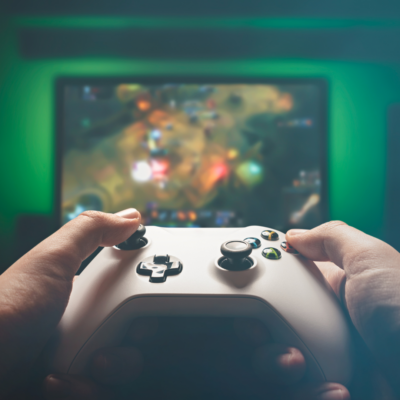How Does Excessive Gaming Turn Into An Addiction

Excessive gaming can affect a person’s physical and mental health, personal relationships, and work or school. Drug or alcohol addiction changes the way the brain functions and the same happens when a person has a gaming addiction. This makes the person continue gaming despite negative consequences. Excessive gaming can lead to isolation, social anxiety, and depression. It can affect relationships, work or school productivity, sleep patterns, and proper nutrition.
In 2018, the World Health Organization (WHO) recognized a gaming disorder as “a new mental health condition included in the 11th edition of its International Classification of Diseases.” The WHO says the new diagnosis adheres to individuals who have lost control over their gaming habits. Gaming addiction allows a person to remain in a virtual world as a way to escape problems in the real world.
In an article by Jocelyn Maminta for WTNH News8 (2019), Robin Seymour, clinical director at Newport Academy said, “Research has shown the chemicals, the same chemicals in the brain that gets stimulated in substance use, those happy feelings, feelings of reward, are also being stimulated when they use games.”
A gaming addiction interferes with a person’s diet. He or she might play games for endless hours without stopping to eat. When a person has a gaming addiction, he or she can become irritable when they cannot play due to special events or occasions.
Signs of a gaming addiction include:
- Irritability when the game is interrupted. This can put a strain on relationships with loved ones. Gaming becomes the person’s number one priority.
- Neglects responsibilities. He or she may often be late to school or work, or not show up.
- Social problems and isolation. The person withdraws from in-person relationships and develops online friendships with other players. For a person who suffers from social anxiety, the online world is more comfortable.
- Fatigue or insomnia. Sometimes, the person will avoid sleep to continue playing the game.
While there is no cure for addiction, it is treatable. If you or a loved one is struggling with addiction, get help now. There is hope in recovery. Get help today.
Serenity Springs Recovery Center focuses on rejuvenating men’s holistic spirit for success in addiction recovery. Our unique dual-diagnosis treatment program with a 12-step completion model helps men change their lives inside and out. Our mission is to provide tools and support for every client’s seamless transition into a meaningful and fulfilling life in sobriety. For information, call (386) 423-4540




